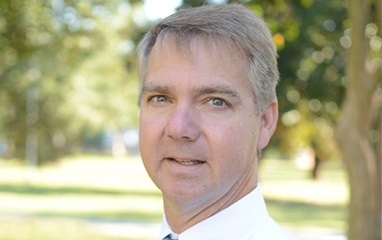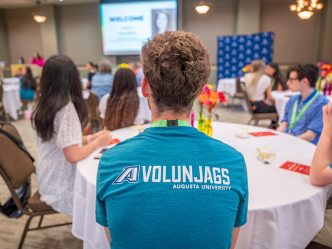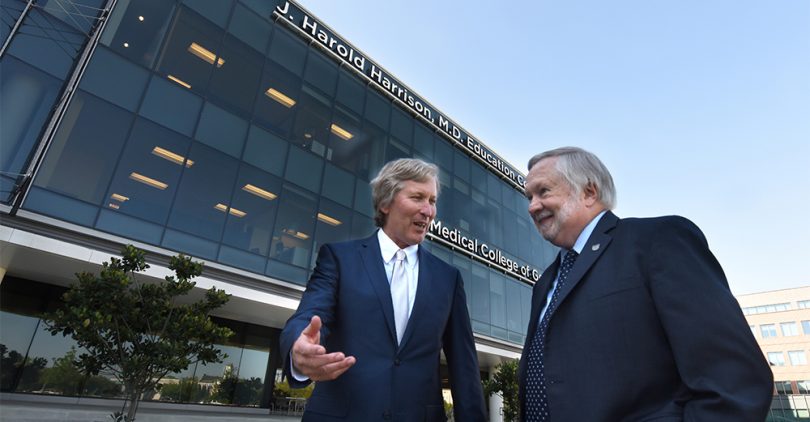After several instances of “just not feeling right,” Georgia Regents University Landscaping & Grounds Manager Scott Davis finally convinced himself in January to see a doctor.
It was a good thing he did. Davis was diagnosed with ventricular tachycardia, also known as a fast heart rate, and doctors said he should consider himself lucky his condition hadn’t resulted in a major cardiac attack.
Ventricular tachycardia, or VT, does not allow enough time for the heart to fill before it contracts so blood does not get pumped throughout the body, according to the American Heart Association. VT can be life-threatening and requires rapid diagnosis and treatment.
Davis’ episodes occurred most often while he exercised. His heart would race faster than normal, and he felt like he would faint.
“It was like my body was saying, ‘You’re going to fall over,’” Davis said. “But, I kind of knew it wasn’t a panic attack.”
In December, he knew something wasn’t quite right but, he said, like many men, he pushed it off as long as he could.
Last month, he made an appointment with his regular doctor, Drew Vanalstine. After performing routine check-up and running normal blood tests, Dr. Vanalstine suggested that Davis seek a cardiovascular consult from one of his medical school colleagues, Dr. Vishal Arora. After a quick, suspicious EKG, Dr. Arora fitted Davis with a Holter monitor, a battery-powered device that measured and recorded his heart activity for a 24-hour period. Davis also kept a diary of his daily activities.
On his birthday, Thursday, Feb. 12, Davis received a rather shocking present. He was told he needed to return to GRMC because data collected from the Holter monitor was abnormal. Davis and his family had plans to travel out of town that weekend, so he assured the nurse he would be in first thing on Monday.
“She said, ‘No, you need to come now,’” Davis said.
Drs. Adam Berman and Robert Sorrentino later implanted a defibrillator in Davis’ chest that can deliver a shock to return his heart to a normal rhythm if it is beating too fast. Davis is also taking antiarrhythmic medicine and has not felt out of sorts since.
“This usually gives people a test of reality,” Sorrentino said,” that we’re not immortal.”
Davis’ VT diagnosis is particularly ironic. Weeks before he’d made the doctor’s appointment in February, he was named captain of GRU’s Division of Facilities Services Heart Walk fundraising team. Now, instead of simply encouraging the Division to raise money, he’s raising awareness of heart health.
The main thing, he said, is to know your body so you recognize when things are out of whack.
“My hope is they’ll learn from me,” he said.
Davis has nothing but good things to say about his experience at Georgia Regents Medical Center. He’s taken care of GRU for years, and now GRU has taken care of him.
“It feels good to support where you work,” Davis said.
 Augusta University
Augusta University




